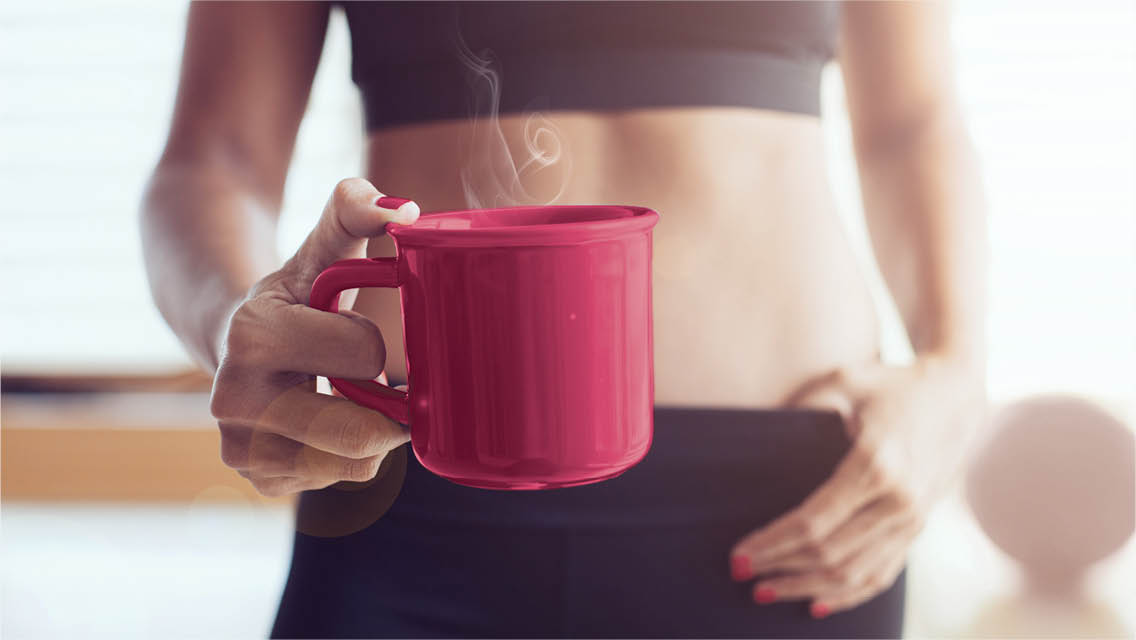Life Time has partnered with the sports health experts at NYU Langone Health to provide insights into the common health issues that have the potential to prevent you from moving freely and functioning at your best.
Meet the Expert

- Sean Heffron, MD, cardiologist and sports health expert at NYU Langone Health
Q: Can using caffeine lead to increased sports performance?
A: Caffeine is the most used psychoactive drug in the world, yet its efficacy in augmenting sports performance is highly debated. While some argue that caffeine is a performance-enhancing drug and should be banned, the research is so inconsistent that it’s still allowed by sports agencies internationally.
“Caffeine is a chemical compound known as a methylxanthine,” explains Dr. Sean Heffron, cardiologist and sports health expert at NYU Langone Health. It inhibits several adenosine receptors in the body, leading to the stimulation of the nervous system.
If you’ve ingested any type of caffeine, you’ve likely felt its effects: increased alertness, mental acuity, and concentration. This can lead to more effective, intense, and focused training bouts over longer durations of time.
More effective training leads to more effective sports performance. In this way, says
Dr. Heffron, “Caffeine affects sports performance indirectly.”
Game-Day Boost?
Dr. Heffron recommends maintaining your regular caffeine routine on the day of a big event. “Use it as you would during training. If you normally have a cup of coffee in the morning, certainly have your cup. If you don’t normally consume caffeine in the morning, don’t drink three cups of coffee that morning.” He stresses not introducing new variables right before or on the big day, and maintaining a proper eating, sleeping, and resting regimen.
Looking for a little boost during the event? Dr. Heffron recommends avoiding caffeine — unless you’re used to it. Instead, he suggests reaching for something that supports hydration, such as a sports drink that contains carbohydrates, glucose, and water, especially during an endurance event.
Caffeine and Dehydration
It’s long been thought that caffeine leads to dehydration. “Caffeine stimulates urination, which doesn’t make for very effective hydration,” says Dr. Heffron. But it’s more nuanced than that.
Consuming caffeine won’t always lead to dehydration, especially if lost fluids are properly replaced. It’s the caffeine consumption in conjunction with insufficient hydration that leads to dehydration. “Dehydration can make someone’s sports performance fail and mental acuity slump,” Dr. Heffron notes.
Simply put, if you’re not also drinking enough water, your caffeine consumption might not be doing much for your sports performance.
When to Avoid Caffeine
If you’re an athlete using caffeine for sports performance, be sure to consider your unique health factors and talk with your healthcare provider.
Among those athletes who should limit or avoid caffeine, pregnant women are at the top of the list. If you’re at risk for fractures and osteoporosis, you might also opt for skipping the stimulant.
Previously, it was thought that those who have abnormal heart rhythms should avoid the use of caffeine. “Now,” Dr. Heffron explains, “the research suggests that caffeine leads to a reduced risk of arrhythmia.” However, moderation is encouraged, as overdosing on caffeine can still lead to the occurrence of a cardiac arrhythmia.
Some Options
Ready to replace your coffee or sports drink for a different caffeine supplement? Dr. Heffron explains that the caffeine itself “doesn’t matter as much as the other ingredients those beverages deliver. Caffeine is caffeine is caffeine.” Skip those laden with added sugars and multiple ingredients that stimulate the nervous system, such as ginseng, taurine, guayusa, B vitamins, gingko biloba, and more.
For those looking to avoid caffeine altogether, Dr. Heffron suggests the following:
- Peppermint: This plant boosts energy.
- Capsaicin: This compound in spicy peppers can increase body temperature, stimulating your system.
- Ginseng: This herbal supplement can boost energy and help to improve focus and mental clarity.
- Water: This one is obvious, but many people are dehydrated and may not realize it.
The Sports Health experts at NYU Langone have the multi-specialty expertise to provide coordinated, comprehensive care for all types of athletes. As an official healthcare partner, Life Time is able to offer its members exclusive concierge access to NYU Langone’s world-class orthopedic specialists and performance experts, who can help you meet your fitness goals. To schedule an in-person appointment or video visit with a Sports Health expert, visit nyulangone.org/lifetime.

